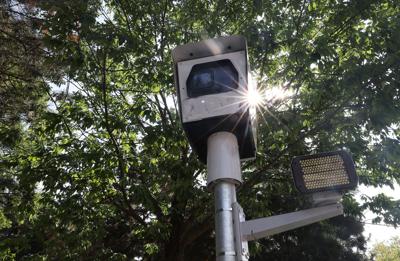After months of serial vandalism, complaints and controversy, Premier Doug Ford is planning legislation to get rid of automated speed enforcement cameras (ASE).
Sources, speaking confidentially in order to discuss internal deliberations, say FordŌĆÖs Progressive Conservatives will table legislation later this fall to outlaw the devices.
HereŌĆÖs what we know and what could happen after this move.
What does this affect in Toronto?
There are 150 speed cameras in the city of Toronto, including the pole-mounted model, such as at Parkside Drive, and the smaller grey box models that are mobile and move to different locations. The city currently only has 130 in play, because since the beginning of the month, 20 cameras have been cut down by vandals.
What about outside of Toronto?
Many municipalities outside of ║ŻĮŪ╔ńŪ°╣┘═°are just getting their speed camera programs rolling, such as in Brampton and Guelph, or they are in the process of rolling out their ASE program, such as in Markham. Those programs will now be halted.
Why does Doug Ford hate speed cameras?
Despite the fact that his government expanded the program and allowed municipalities to use speed cameras in 2019, when he made comments saying he was in favour of the devices as safety tools, in recent weeks, Ford has derided speed cameras as a ŌĆ£cash grabŌĆØ and touted speed bumps and roundabouts as methods to slow drivers down. It’s a case of history repeating itself, as former conservative Premier Mike Harris got rid of photo radar in 1995.
Vaughan just got rid of its cameras, why?
After launching their program with 10 devices in Vaughan in April,┬Āmore than 32,000 tickets were issued to lead footed drivers,┬Āafter three weeks. That prompted a number of complaints to Mayor Steven Del Duca and other councillors, so city council paused the program in June for the summer. After the premierŌĆÖs comments about possibly getting rid of the program, Del Duca put forth a motion to get rid of the cameras in that city, in a move that was praised by Ford.
Are speed cameras a cash grab?
It depends on who you ask. Advocates say they are an effective safety tool that multiple studies have shown changes behaviour by punishing people with a fine. The fines collected by municipalities go back into other road safety programs.
People who dislike speed cameras say that they donŌĆÖt slow people down and call the money collected an unfair tax. There are also arguments about what the speed threshold should be for when a ticket is issued.
Are there people in favour of speed cameras?
Despite the visceral and vocal hatred for speed cameras, there are many people who do support them. A CAA survey showed that 75 per cent of people were in favour of them.╠²
A recent┬ĀHospital for SickKids study looking at 250 different locations across ║ŻĮŪ╔ńŪ°╣┘═°from July 2020 and December 2022 measuring speeds before and after cameras went up, found that the overall percentage of cars speeding dropped by 45 per cent ŌĆö and that speed cameras most improved the behaviours of the speediest of drivers.
Did the serial vandals have anything to do with this decision?
The Parkside Drive speed camera, TorontoŌĆÖs most prolific ASE, has issued more than 70,000 tickets and $8 million in fines since being installed in April 2022. It has been cut down seven times in the past 11 months. Many other cameras have also been cut down and stolen, including 16 cameras in one night earlier this month. These attacks on speed cameras have definitely made the issue much more visible, but itŌĆÖs hard to say if they have been a factor in the provincial government’s decision.╠²
If I get a ticket from one now, do I have to pay it?
It is believed that the legislation will be coming sometime this fall, so it’s unknown if it will include forgiving already issued tickets, so until that’s clear, if you get dinged for speeding, it’s a good idea to pay it. As an example, tickets issued in Vaughan before June 4, when the ASE program was paused there, remained valid and had to be paid.
Will there be a legal challenge to keep the speed cameras?
Sources say that municipalities and other advocacy groups legal teams are ŌĆ£doing their homeworkŌĆØ on the possibility of mounting some sort of a challenge to keep the ASE programs, although itŌĆÖs unclear what the legal grounds might be, and whether municipalities have the right to challenge, as itŌĆÖs a provincial law that allowed the cities to initiate the programs.





























To join the conversation set a first and last name in your user profile.
Sign in or register for free to join the Conversation